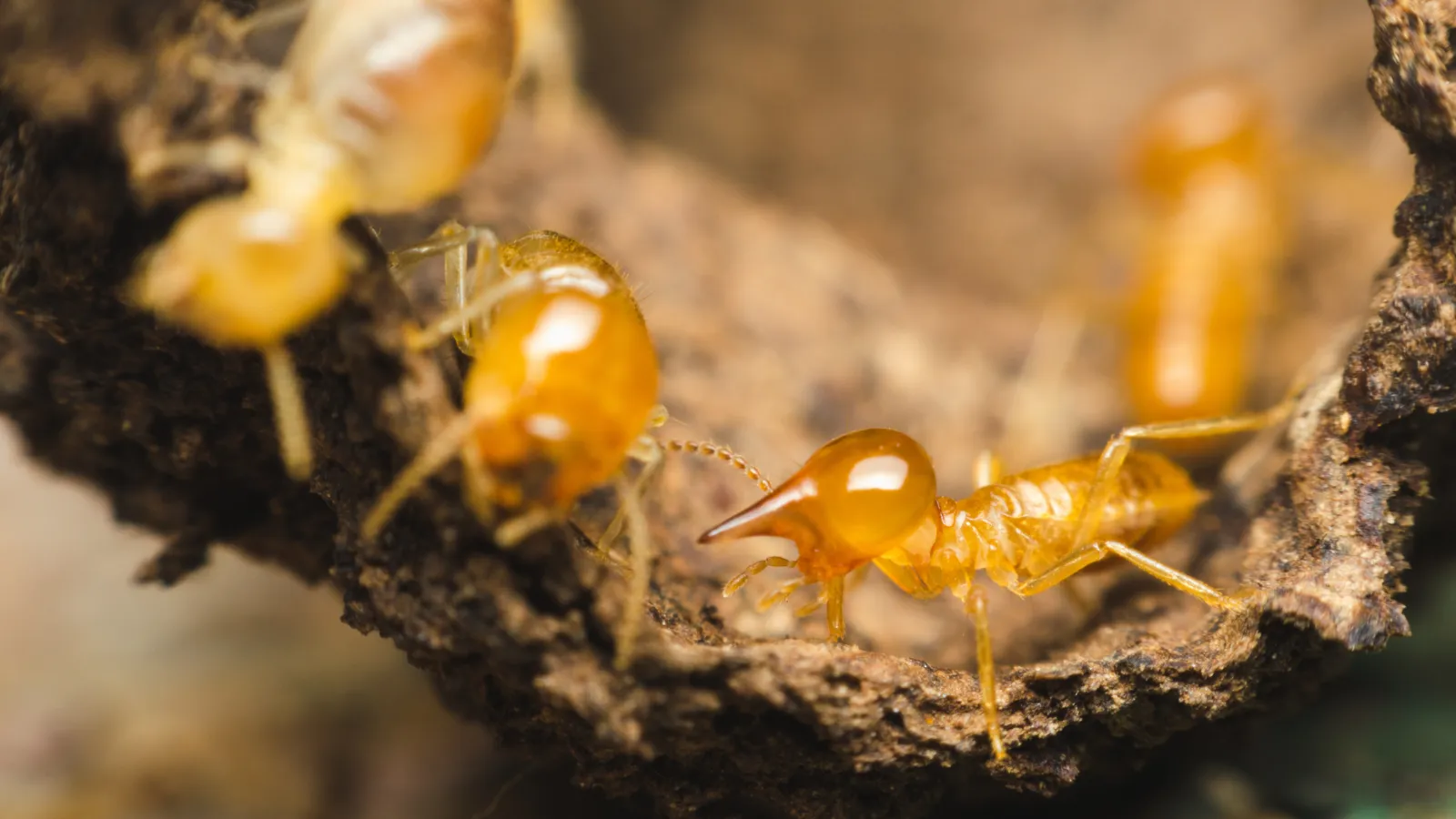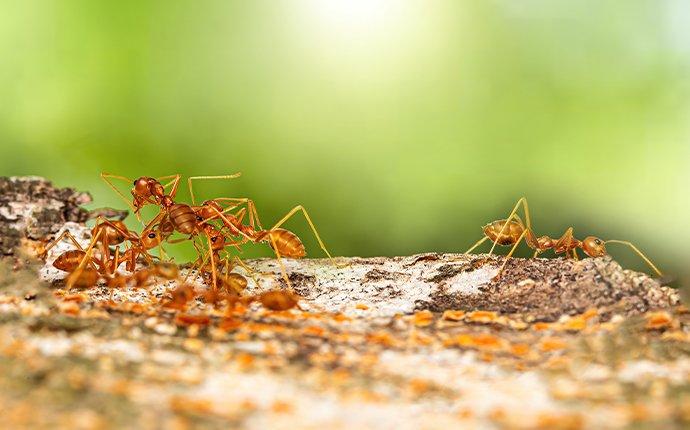Premier Termite Control Services: Guarantee Long-Term Security for Your Property
Premier Termite Control Services: Guarantee Long-Term Security for Your Property
Blog Article
Environmental Effect of Pest Control: Harmonizing Effectiveness With Sustainability
The environmental influence of pest control is a vital problem that needs a fragile equilibrium between achieving effectiveness in guaranteeing and taking care of parasites sustainability of our communities. From the usage of damaging chemicals that seep right into our dirt and water to the unplanned consequences on non-target varieties, the effects of traditional bug control methods are significant.
Unsafe Chemicals in Parasite Control
The usage of dangerous chemicals in bug control positions substantial ecological and health and wellness risks that call for careful consideration and mitigation strategies. Herbicides, pesticides, and pesticides are generally made use of to eradicate pests, however their extensive application can cause unexpected effects. These chemicals can contaminate dirt, water sources, and the air, influencing not only the targeted parasites however likewise useful pests, wild animals, and human beings.
To resolve these risks, integrated pest monitoring (IPM) methods are being advertised as an extra lasting alternative. IPM involves a combination of approaches such as organic control, habitat manipulation, and the targeted use chemicals as a last resource (ant control winston salem nc). By embracing an alternative strategy to pest control, we can decrease the ecological and wellness influences linked with dangerous chemicals while properly handling pest populations
Influence on Non-Target Species
Taking into consideration the unplanned effects of bug control techniques, the influence on non-target types is an important aspect that requires complete assessment. While insect control measures aim to target specific bugs, various other microorganisms in the ecological community might be inadvertently influenced. Non-target varieties, including valuable pests, birds, creatures, and even plants, can suffer straight or indirect harm from chemical applications or biological control approaches.
Chemicals can have sub-lethal or dangerous impacts on non-target species. Pesticides designed to deal with a specific insect parasite may damage pollinators like or all-natural killers such as ladybugs. Additionally, chemical deposits can build up in the environment, affecting non-target microorganisms gradually. Biological control agents, if not species-specific, can posture threats to unexpected targets, interrupting the eco-friendly balance.
To minimize the effect on non-target species, incorporated pest administration (IPM) techniques that emphasize an all natural approach to pest control are recommended. These techniques focus on using eco-friendly techniques, reducing harm to valuable microorganisms while efficiently managing pest populations. Carrying out detailed danger analyses and checking the outcomes of parasite control initiatives are vital action in safeguarding non-target varieties and advertising total ecological community health.
Soil and Water Contamination
Unplanned environmental effects of bug control techniques prolong past impacting non-target types, with substantial effects for soil and water contamination - termite control. Chemicals, herbicides, and chemical fertilizers made use of in insect control can seep into the dirt and infect groundwater, positioning a danger to both marine and terrestrial communities.
Water contamination visite site is one more vital issue connected with pest control techniques. Runoff from farming fields treated with chemicals can lug these chemicals into neighboring water bodies, impacting marine microorganisms and water quality. Impurities in water sources can have far-ranging consequences, influencing not just aquatic life yet additionally human health and wellness via the intake of contaminated water or marine microorganisms. To reduce dirt and water contamination from parasite control tasks, incorporated pest monitoring strategies that prioritize sustainability and decrease chemical inputs are crucial.
Air Contamination From Pesticide Use
Exposure to airborne pesticides during farming applications postures a considerable worry for air pollution control steps. Additionally, chemical drift, where chemicals are lugged by the wind to unintended areas, can lead to the contamination of nearby environments and water bodies.

Methods for Sustainable Insect Control
In the world of farming techniques, carrying out lasting parasite control approaches is extremely important for maintaining eco-friendly balance and safeguarding crop yields. Lasting parasite control highlights using eco friendly methods to manage insect populaces effectively while reducing damage to non-target microorganisms and ecological communities. Integrated Pest Administration (IPM) is a widely embraced approach that integrates organic, social, physical, and chemical control methods to achieve lasting bug management options.
Crop rotation and diversity are also reliable strategies to interfere with pest life cycles and produce much less positive conditions for insects to prosper. Ultimately, by integrating these sustainable pest control strategies, farmers can achieve an equilibrium between pest management effectiveness and environmental stewardship.
Verdict
To conclude, the ecological influence of pest control methods should be very carefully taken into consideration to balance effectiveness with sustainability. Unsafe chemicals utilized in bug control can lead to soil and water contamination, air pollution, and harm non-target types - termite control. It is critical to execute sustainable pest control methods to lessen these adverse results on the setting and advertise a healthier environment for future generations
By taking on an all natural approach to pest control, we can minimize the ecological and health impacts linked with damaging chemicals while properly managing pest populations.

To minimize the air contamination triggered by pesticide usage, it is essential to embrace incorporated pest management approaches that focus on the usage of non-chemical pest control approaches, such as plant rotation, natural killers, and resistant plant varieties. Lasting pest control stresses the use of ecologically friendly approaches to take care of parasite populations properly while minimizing injury to non-target microorganisms and environments. Integrated Parasite Management (IPM) is a widely embraced method that integrates organic, cultural, physical, and chemical control techniques to attain lasting bug management solutions.
Report this page